#Sanderson’s Laws of Magic
Text
Brandon Sanderson’s Laws of Magic, Expounded
0. Err on the side of awesome
Tons of stories actually start with an awesome idea that is fleshed out.
You can always work out how to make the awesome fit into these rules.
1. An author’s ability to solve conflict with magic in a satisfying way is directly proportional to how well the reader understands said magic.
Deus ex machina is to be avoided at all costs.
There is a sliding scale of “sense of wonder” and “solving problems with magic”/scientific explanation of magic. You lose wonder as you increase science, and vice versa.
Main characters tend to use magic tools instead of magic itself to do this. Think monkey’s paw stories.
Ex. The One Ring is more science, and Gandalf in LotR is more wonder, especially since most of his magic is offscreen. His magic is there to keep the hobbits small and relatable to readers. The One Ring is used by Frodo to solve problems.
This is also a law of foreshadowing, especially since wonder can become science later in the book or another book in the series. Can also be how a magic mystery is solved.
2. Flaws or limitations are more interesting than powers.
Cost and stakes for using magic plays a big part into limitations, too.
Basic limitations as a plot device: someone has better magic; characters cannot use magic; a character’s magic isn’t working/lost; a character/people don’t understand the magic enough
Magic limitations can be combined with character flaws/limits, and social aspects too.
Work with the limitations! Characters don’t need to overcome every weakness, but it should add to the story somehow.
3. Expand what you already have before you add something new.
For magic systems, think of the Judeo-Christian-Muslim split versus ALL the world religions. Those 3 share the same foundations despite being vastly different.
Quality vs quantity
You aren’t required to have languages. Similarly, you don’t need to overwork the magic.
If you add a secondary magic system, your first must have indicated holes in the magic to be filled. It also helps to sprinkle in hints and foreshadowing of a second one and its abilities.
And all of these rules can be applied to your setting and characters in a general sense, too!
Brandon Sanderson’s free 2020 lectures on YT
#writing#writing advice#brandon sanderson lectures#brandon sanderson#story writing#magic system#fantasy writing#Sanderson’s Laws of Magic#rule of cool#literally the only advice from him I found online#which is why I am doing this series
271 notes
·
View notes
Text
6 notes
·
View notes
Text
Sanderson’s laws of magic
In my arrogant opinion, this post is super cool. I love Sanderson, I love magic systems, but he surely loves them and knows them more than me so I’ll shut up and show you his tips, or better, his laws to improve your writing:
The author's ability to resolve conflicts in a satisfying way with magic is directly proportional to how the reader understands said magic.
Weaknesses are more interesting than powers.
Expand, don’t Add.
T-that’s pretty much it! Have fun!
#sanderson#writing tips#writers on tumblr#writing#writing advice#laws of magic#yes i was too lazy to write an actual post
18 notes
·
View notes
Text
The person who said that every fantasy book needs to have a "magic system" should be gutterpunched
#its a sound concept i guess#but it has made the discussion of fantasy so so stupid#'i dont care for the magic system in X. it doesnt really have any clear rules :/'#shut uppp#would you believe me if i said that i saw someone talking about 'The Magic System' in Jonathan Strange & Mr Norrell#like..... the entire thesis of JS&MN is how theory and the idea of the gentleman scholar is in opposition to whimsy and magic#superimposing an analytical tool set on top of something that is inherently in opposition to logical analysis#is a good way of showing that you didnt understand the point it was making.#people want the fucking laws of robotics for talking to trees or whatever and they want it Every Single Time#not every book is written by Brandon Sanderson and this fact might as well be occult knowledge to some people
1 note
·
View note
Text
Magic and Lawlessness
I have an almost irrational distaste for “hard” magic systems in literature. This is not because of any particular aversion to stories getting metaphysical. I have absolutely no problem there but it is instead because I think attempts to systematize magic have a tendency to strip the magic out of it. There is a famous quote from Arthur C. Clarke that “any sufficiently advanced technology will be…
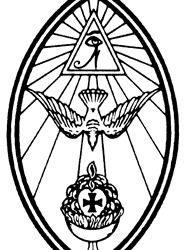
View On WordPress
#Arthur C. Clarke#Brandon Sanderson#Clarke#JRR Tolkien#law#LeGuin#magic#materialism#Sanderson#T.H. White#Ursula K LeGuin#Ursula LeGuin
1 note
·
View note
Text
Midnight Pals: Magic Systems
[at Unicorn Fuck Club]
Brandon Sanderson: hey robert what kind of magic rules do you have
Sanderson: in my fantasy world, there's 18 laws of magic
Sanderson: sorted into 23 categories and 65 sub-directories
Robert Jordan: huh
Jordan: well in my world, girls do girl magic and boys do boy magic
Sanderson: wait what?
Jordan: girls do girl magic and boys do boy magic
Sanderson: how does that work
Jordan: saidin is stored in the balls
Jordan: why, how does your magic work
Sanderson: ah well if you experience an emotion in my fantasy world
Sanderson: then a sprite representing that emotion with physically appear and dance around
Jordan: is that like Big Mouth then
Sanderson: what
Jordan: its a cartoon show
Sanderson:
Sanderson: oh idk maybe
Sanderson: i haven't seen it
Sanderson: i only watch saturday's warrior on loop
Jordan: look, i just think it makes sense
Jordan: that the fundamental mystery powers of the universe would bisect neatly along binary gender lines
JK Rowling: goddamnit!!!
Rowling: why didn't i think of that
Rowling: ugh, inssstead i only have magic dividing people into uebermensssches and untermensssches
Rowling: it could have been sssso much more!
Rowling: sssso in my world
Rowling: the sssuperior wizard raccce issss sssimply born knowing magic
Sanderson: right, right
Rowling: then they have to go to sssschool
Rowling: you know, to learn
Rowling:
Rowling: magic
Rowling: alssso there are bad wizardsss who want to exterminate non-wizardssss
Rowling: the bad wizardsss represssent queer people now
Rowling: that's why we need to get them before they get us
Rowling: anyway if you're an elected repressentative writing eliminationalisssst lawsss, feel free to reference my fictional booksss for jussstification
Tolkien:
Martin:
Rowling: i don't get it, that alwaysss getsss a big hand on mumsnet
Diane Duane: in my world, anyone can learn magic
Rowling: SHUT UP DUANE
Duane: from a book
Rowling: SHUT UP
Duane: you can get it at the library
John Bellairs: oh yeah i think i've seen that book
#midnight pals#the midnight society#midnight society#jk rowling#brandon sanderson#robert jordan#diane duane#john bellairs#grr martin#jrr tolkien
4K notes
·
View notes
Text
The fairy/walrus thing is actually kind of an incredible testament to the truth behind Brandon Sanderson’s first law of magic.
For those that don’t know, popular fantasy author Brandon Sanderson has become quite renowned for how he implements magic in his stories and he decided to write three different essays on the rules he follows and why they work the way they do in storytelling. He calls them his “laws of magic” and the first one is: An author’s ability to solve conflict with magic is directly proportional to how well the reader understands said magic.
Basically, in general for good fantasy writing, you can do anything you want with magic and it will almost always alway be accepted by the reader as long as you set up beforehand what the magic is capable of. Or if you didn’t do that it has to be something the reader discovers with the characters (I mean this generally of course I’m sure there’s always exceptions).
Both the walrus and the fairy scenario imply to the reader (of the poll) some form of magic was employed. The reason a fairy sounds more plausible at that point is because the general cultural consensus in people’s minds is that fairies are already magic and it’s not far of a stretch to believe that a fairy would employ the thing it’s universally known for in order to show up at people’s houses.
However with the other scenario, a walrus knocking at your door. Implies that a walrus is employing some form of magic. But the problem with that is that we already KNOW what a walrus is capable of. A walrus has RULES. When the only rule a fairy has to follow in order to knock on someone’s door is “be magic” a walrus has to first break all the rules we already have about it before “be magic” is even an allowed concept. Before a walrus can be magic it has to take a journey of some length from its aquatic origins, have a specific destination in mind(outside of their regular behavior patterns), and have the capacity to knock. All forms of magic that walrus’ are not known for employing.
Like if the walrus scenario was a book someone was reading and at the very beginning the author described a world in which there was a secret society of walrus’ who have there own politics and methods of travel and cultural nuances, and then went on to describe one of THOSE walrus’ appearing on the reader’s doorstep then the reader would left with a much smaller sense of disbelief more comparable to that of a fairy showing up on their doorstep.
Anyway this wasn’t to say that there was a wrong or right answer to the poll I just think peoples brains are neat and I love how something like a silly little poll can highlight such a big truth in how people communicate to each other and take in information.
293 notes
·
View notes
Text
What to read after Light Bringer? (Series similar to Red Rising)
August 2023 update!
Red Rising is my favorite series of all time, and since I first read it, I have sought series and books similar in both spirit and execution. Some of these recs are books I haven’t read personally, but have often come up in discussions with other users!
1. The Stormlight Archive by Brandon Sanderson
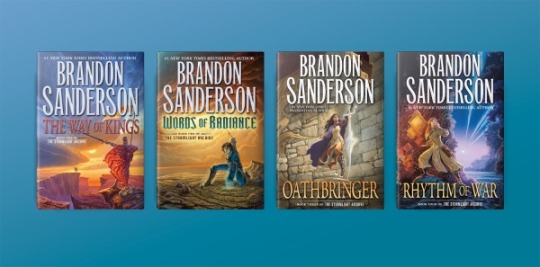
Status: ongoing, expected 10 books in total, 4/10 out at the moment
Book 1: The Way of Kings. The Way of Kings takes place on the world of Roshar, where war is constantly being waged on the Shattered Plains, and the Highprinces of Alethkar fight to avenge a king that died many moons ago.
2. The Craft Sequence by Max Gladstone

Status: finished, 6/6 books out.
Book 1 (in publication order): Three Parts Dead. Comprised of 6 standalone books set in the same universe, the Craft Sequence tells the tales of the city of Alt Coulumb. The city came out of the God Wars with one of its gods intact, Kos the Everburning. In return for the worship of his people, Kos provides heat and steam power to the citizens of Alt Coulumb; he is also the hub of a vast network of power relationships with other gods and god-like beings across the planet. Oh, and he has just died. If he isn’t revived in some form by the turn of the new moon, the city will descend into chaos and the finances of the globe will take a severe hit.
3. Hierarchy by James Islington
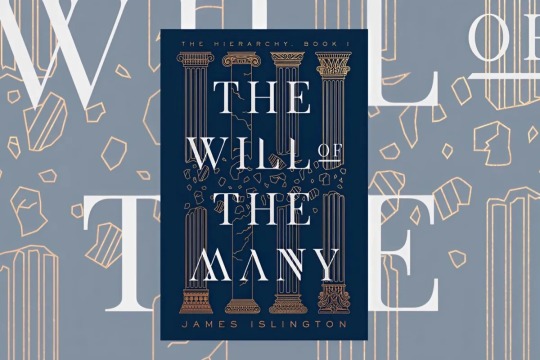
Status: ongoing, 1/3 planned books out
Book 1: The Will of the many. The Will of the Many tells the story of Vis, a young orphan who is adopted by one of the sociopolitical elites of the Hierarchy. Vis is tasked with entering a prestigious magical academy with one goal – ascend the ranks, figure out what the other major branches of the government are doing, and report back. However, that isn’t quite as easy as Vis or anyone else thought it was going to be…
4. Suneater by Christopher Ruocchio
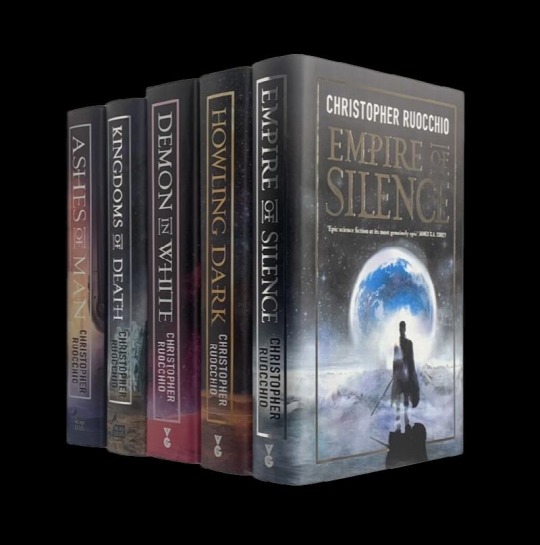
Status: ongoing, 5/7 books out
Book 1: Empire of Silence. Hadrian is a man doomed to universal infamy after ordering the destruction of a sun to commit an unforgivable act of genocide. Told as a chronicle written by an older Hadrian, Empire of Silence details his earlier adventures and serves as an introduction to the characters and the setting.
5. Dune by Frank Herbert
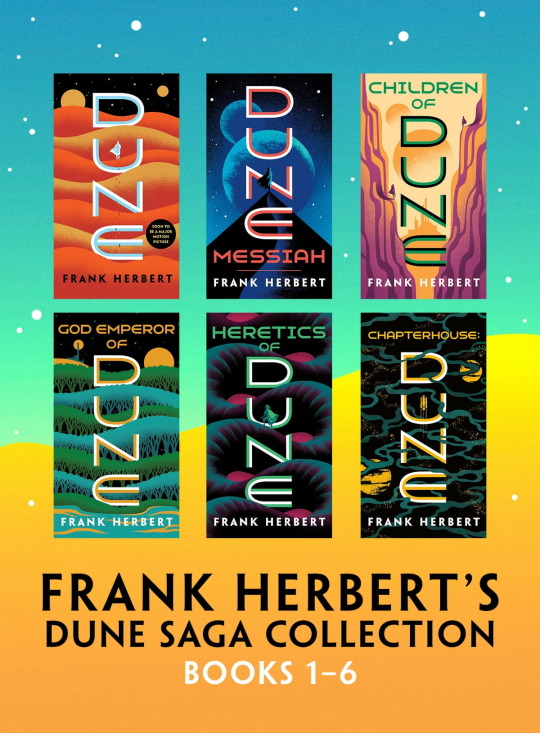
Status: completed, 6/6 books out
Book 1: Dune. Set in the distant future amidst a feudal interstellar society in which various noble houses control planetary fiefs. It tells the story of young Paul Atreides, whose family accepts the stewardship of the planet Arrakis. While the planet is an inhospitable and sparsely populated desert wasteland, it is the only source of melange, or "spice", a drug that extends life and enhances mental abilities.
6. The Expanse by James S A Corey
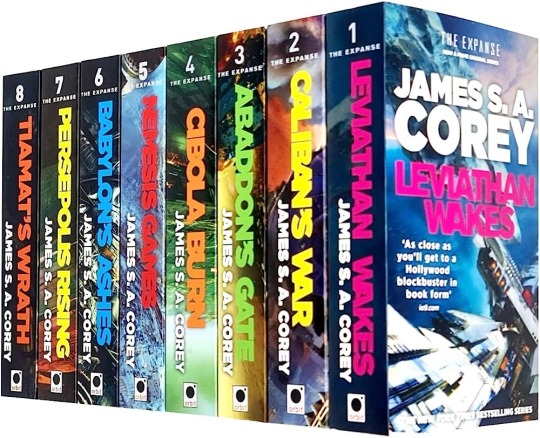
Status: completed, 9/9 books out
Book 1: Leviathan wakes. Set hundreds of years in the future, after mankind has colonized the solar system. A hardened detective and a rogue ship's captain come together for what starts as a missing young woman and evolves into a race across the solar system to expose the greatest conspiracy in human history.
7. The First Law by Joe Abercrombie
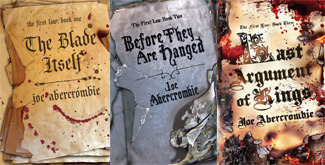
Status: completed. 3 books in the original trilogy + 3 standalone books + 3 books in the newest trilogy
Book 1: The Blade Itself. The story follows the fortunes and misfortunes of bad people who do the right thing, good people who do the wrong thing, stupid people who do the stupid thing and, well, pretty much any combination of the above. Survival is no mean feat, and at the end of the day, dumb luck might be more of an asset than any amount of planning, skill, or noble intention.
8. Cradle by Will Wight
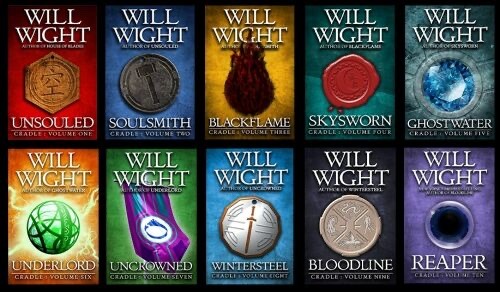
Status: completed, 12/12 books out
Book 1: Unsouled. Lindon is Unsouled, forbidden to learn the sacred arts of his clan. When faced with a looming fate he cannot ignore, he must rise beyond anything he's ever known...and forge his own Path
9. Hyperion Cantos by Dan Simmons (one PB’s favorites)
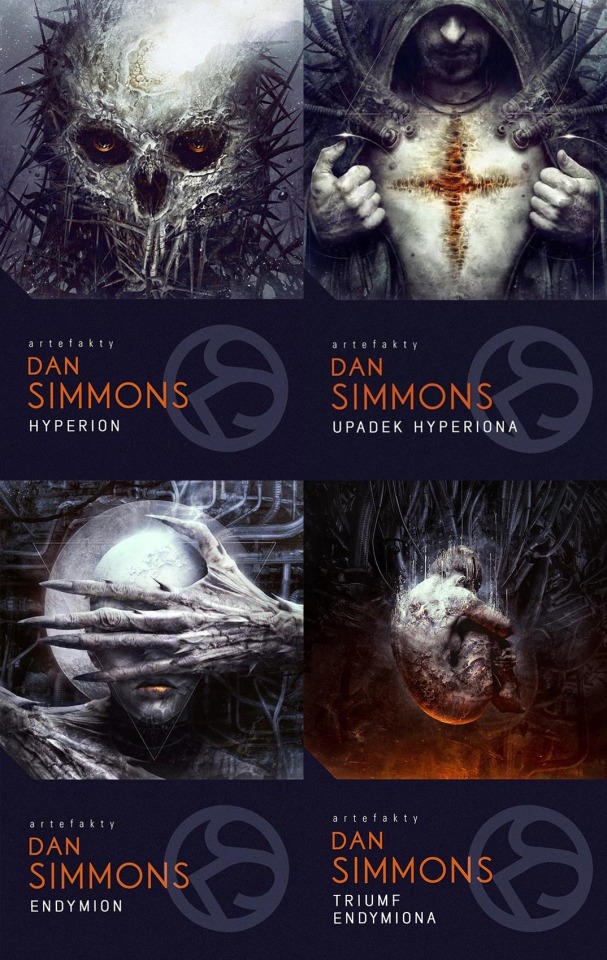
Status: completed, 4/4 books out
Book 1: Hyperion. The story weaves the interlocking tales of a diverse group of travelers sent on a pilgrimage to the Time Tombs on Hyperion. The travelers have been sent by the Church of the Final Atonement, alternately known as the Shrike Church, and the Hegemony (the government of the human star systems) to make a request of the Shrike. As they progress in their journey, each of the pilgrims tells their tale.
#red rising#golden son#morning star#pierce brown#dark age#iron gold#light bringer#what to read#book rec#book recommendation#books#stormlight archive#hyperion cantos#craft sequence#the expanse#hierarchy#the will of the many#first law#suneater#sun eater#dune#cradle series
507 notes
·
View notes
Text
SONIC HOCUS POCUS AU!!
"In wich Metal, Amy and Sage have to stop the curse of the Sanderson Witches before accidentally causing said curse in halloween night."
//TW: mild-mentions to death, violence, and gore//


Metal and Sage are new in the city of Salem, with their fathers (Ivo and Stone) moving out into an old family house that an relative of Ivo Kintobor left to his name.
Amy is your local believer of all stuff paranormal and most importantly: the history of Salem, even being long-time friends with Tails, who is an all and all recognizable kid for being an allegedly descendant of The Sanderson Sisters. He doesn't seem to like how much attention he get's about it tho...
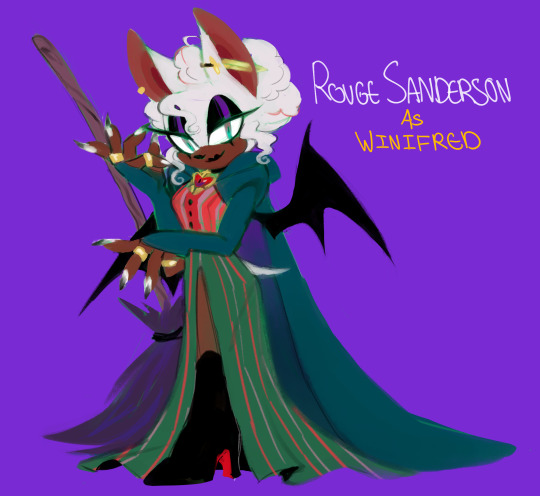

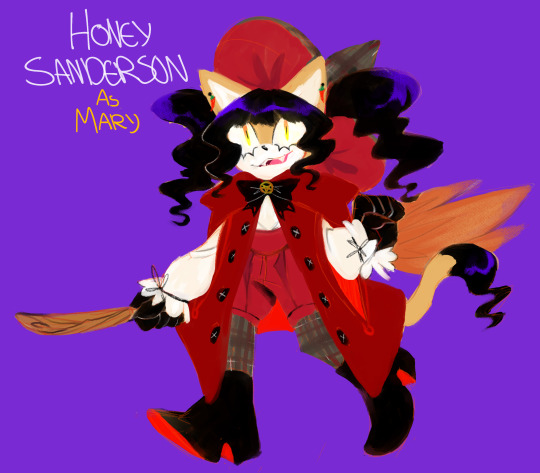
Rouge, Sonic and Honey a.k.a: The Sanderson Sisters
Are the most famous names of the whole town,having been said to be the main inquisitors of spreding havoc and misfortune with witchery in Salem centuries ago:
-Rouge Sanderson, the oldest and most powerful of the three. She possessed a spell-book that was bound in human skin and contained her most powerful spells and recipes.
-Nicky Sanderson (Better known as Sonic) that was a charming but deeply dangerous witch, with a voice that could control and lure the mind of anyone that heard him. Rumors said his own magic slowly brought him into madness.
-Honey Sanderson, a seamstress of enchanted puppets for curses and spells. Those who got tempted by revenge usually came to her and payed a big price for her terrible practices to control others.

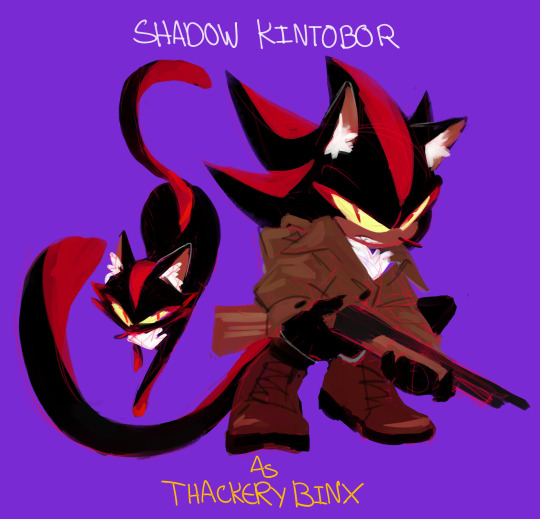
A lot of stories has been told around the years about the acts of the witches, such as the one of Knuckles E.: Rouge's lover, who was said to mingle with Sonic, so she poisoned the echidna and got Honey sew his mouth, so he couldn't tell Rouge's secrets even in death.
But, by far the most well-known story, is the one of how the three witches where hanged. Having plans of taking the life of childrens to aquire everlasting life.
Legend says, that they did indeed took the soul of one Maria Kintobor, as a way to punish the whole Kintobor lineage for their persecutions against themselves, as the head of the family, Gerald Kintobor, was the main judge in charge of witches law by that time.
The oldest brother of the family, Shadow Kintobor, was lost to this as well, cursed to live forever in the form of a black cat that guarded the only thing that could bring the Witches back: The Black Flame Candle.
STAY TUNED FOR MORE...!
#sth#sonic the hedgehog#sonic au#au#sonic hocus pocus au#witches#spells#based on the 1993 movie#witch trials#metal sonic#amy rose#sage#miles tails prower#rouge the bat#honey the cat#knuckles the echidna#shadow the hedgehog#halloween#TW#mild horror#but like#fun <3#Murder#morbid jokes#They are slaying tho
292 notes
·
View notes
Text
Re: Magic systems
kosmonaunt asked:
I have the weird hyper-fixation of wanting to know all their is about The Speech and just how everything works!! I love learning about how power systems work, and it helps since I’m trying to develop my own. I’m always stuck on soft or hard magic systems. Since I don’t know all there is to really know about my system.
Do you have tips on crafting magic systems? How do you feel about someone being inspired by pieces of your system?
Inspiration is fine! What you want to make sure you do with whatever inspires you, though, is to work hard to make your own take on it different from or better than what you borrowed. Around here we refer to this as "the magpie principle:" if you're going to pick up and play with/make off with a bright and shiny idea, you need to be working to produce something even brighter and shinier as your part of the "exchange". Whether or not you succeed at this (or can succeed), either sometimes or never at all, isn't the point. The point is to always be trying.
As regards building magic systems: there were three different ones in the foreground or background of my first novel alone—all of them with features that at this end of time I can recognize as being inspired by elements of magic systems in other writers' work. But by the time I'd more fully developed them, each had become something unique. The system I'm probably better known for—the system based on the wizardly Speech and its use—sprang more or less automatically from the increasingly complex answers to the question, "What if there was a manual that could tell you the truth about/the secrets of what makes the world go?". (Because once you answer one question, another pops up. "Where did that manual come from? What're you supposed to do with it? What's wizardry for?" Etc., etc.) I've spent the last few decades, on and off, answering that question in ways that (intentionally) mirror the main characters' exploration of the art of wizardry, and what it means to engage in the business of errantry in a world that mostly thinks wizards are a fairy tale.
Before getting into describing my own approach to building a system, I needed to take a little time to look around and make sure I knew what you meant when you mentioned hard and soft magic. My best guess is that you're referring to what a lot of people are calling "Sanderson's Three Laws of Magic" (fairly enough, as Brandon calls them that himself). I had a look, and have come to the conclusion that they're more general guidelines than laws... as in each of his three essays on the subject, Brandon no sooner names his basic laws/principles than he starts punching holes through them to make room for systems that don't follow them rigidly. (And frankly I find this kind of endearing.)
With his first one, in particular, I have no quarrel at all: the concept that in one kind of magic, which for his purposes he defines as the "hard" kind, rules are extremely important. (Which is why I'm kind of horrified that he apparently got dogpiled about this take on a Worldcon panel, because to me it seems so intuitive. Some of the best fantasy storytellers I know, like this one, would agree with him.) Then later he gets on to the equally valid ideas that limitations on magic are really important, and that culturally interconnecting multiple systems is useful; and here too we're in agreement. This is reassuring to me, considering that I built my first four systems—all of which feature approaches resting on similar concepts—while Sanderson was between four and six years old. :)
People using Sanderson's Laws will look at the three systems in the Middle Kingdoms books and classify them as varying sorts of relatively hard magic, with their power rooted in two or maybe three different sources. (The blue Fire is a gift of the Divine, nearly lost since ancient times and much damaged, but now slowly being recovered: sorcery is a language-based art in which no one's terribly sure where its power comes from: and the so-called "royal magics" probably started out as a blood sorcery that over centuries was shifted toward very specific uses by the power of the demigod-descendants who employed it.)
The Young Wizards novels, though, feature an extremely hard magic deeply rooted in science and (more or less under the hood) very, very rules-intensive... while its power relies on correct use of the language used to create the Universe, and the active cooperation of the Powers still busy about that work. And this is the reason why, though people are going to naturally be curious about the Speech itself, no one's going to hear very much from me about its actual words.
This is because the Speech is canonically described as so powerful that its use is something you can feel in your body and mind (and theoretically your spirit): bone-shaking, life-changing, unmistakable. And there's no way that made-up words on the page can realistically be expected to evoke physical sensations like that in the reader... or like the sense of the universe going silent around you, leaning in to listen, as you speak your spell. The careful writer knows that it's unwise to attempt to produce responses in the reader that, when they fail, will only emphasize how that thing is not happening, and stands a good chance of shattering the illusion one’s trying to weave.
So a Speech-word gets dropped here and a phrase there, but no one's ever going to get enough of it out of me to try to build a spell. Readers are better at doing that work for themselves in their own heads, out of hints and whispers. Over ten books and their interstitial material, there are plenty of those scattered through the text: not to mention the most basic principles of wizardry, which are laid out before the end of the first chapter of the first book in the series. So I'll leave you to get on with deducing what you can from canon.
Meanwhile, if I was about to build a new system, I'd look at my main characters—in the setting of their home cultures—and ask myself for answers to these questions:
What do they want more than anything?
Why can't they have it?
What kind of power will help them get it?
When they do eventually get within reach of the power / the desired thing... what will its achievement cost them?
And will they pay the price?
...Because the payment of such prices is where you find out what your heroes are worth. (Or aren't.) The above arc succinctly describes, in broad strokes, both The Door into Fire and So You Want To Be A Wizard, and a good number of the books that follow them. (Because why abandon what works, or try to fix what's not broken?) :)
With answers to the questions above you can start feeling your way toward what you need—always looking closely at the cultures your characters spring from, and how those cultures will shape their response to the magic they seek. (Or that finds them.) Maybe it's no surprise that the preferred arc structure of a writer who was a psychiatric nurse will be deeply involved with questions of motivation: because motivation is at the heart of almost all human behavior. Find the motivation and you find the character's heart—and, often enough, what kind of magic they need to make their desire and intention overflow into triumph.
...There are quite a few "How to design your magic system" pages out there. You might glance at these to see if there's anything useful in them for you:
How To Build An Amazing Magic System For Your Fantasy Novel
How To Create A Magic System In Six Simple Steps
Building Your Magic System: A Full Recipe
How To Create A Rational Magic System
However, my favorite is the "So You Want To Write A Functional Magic System" page at TV Tropes, which is nicely arranged yet also completely nonprescriptive—a pick-'n'-mix jar of prompts, things other writers have done that've worked, and generally useful ideas. (And try not to vanish too far down the many interconnected rabbitholes...) :)
Now get out there, build the world, and make the magic(s).

277 notes
·
View notes
Text
Least Favorite Novel of the Cosmere
GodsShoeShine23 : I'd say Alloy of Law. I just honestly didn't really care about Wax and Wayne until they were more fleshed out in Shadows of Self and Bands of Mourning. For Once, Brandon kind of just threw us right into the action from the get-go, but did so in a way where I had no real motivation to root for the main characters of the book other than them being the main characters of the book.
Brandon Sanderson: I wonder sometimes if I should do a full-on rewrite of Alloy. It would also be my vote for weakest Cosmere novel. (I think it's probably my weakest novel overall.) The big problem came from it being a short story, that became a novella, that became a fun little novel not meant to do any heavy lifting. But the series went from there to get some of my strongest books, as I fell in love with world and characters, and became a full-blown era rather than a pit stop between tow large eras.
So you have something weaker, meant as a kind of "Secret History" novella, to a load-bearing pillar of the Mistborn series. And it's the place where already (coming off the main trilogy) where people were the most likely to abandon Mistborn as a larger mega-series. So I have my weakest cosmere book in a pivotal place in the sequence.
The solution could be to just take it and give it a ground-up rewrite with more depth of characterization and narrative rigor. But then, we have the problem of their being two significantly different versions of a book, which causes other logistical problems.
GodsShoeShine23: I find it hilarious that the one time I’m not praising your novels, you end up stumbling upon my comment, lol.
In all seriousness, I thought Alloy of Law was still a pretty fun read. I like the expansion on the magic system that was built up in Era 1, and Wayne honestly ends up being one of my all time favorite characters in the cosmere. I always thought to myself that Alloy of Law read like a novella, so it’s actually interesting to see that it was originally based on a short story idea essentially.
I will say this though; I expected to see most people vote Elantris as the weakest book as seen in the comments, but I honestly found it to be much more entertaining than people lead me to believe. Hrathen may be my favorite antagonist you’ve written, and I’m wondering if more will be revealed about his charcater in the sequels.
#mistborn#the bands of mourning#elantris#cosmere#cfsbf#brandon sanderson#branderson#wob#kind of#long post
65 notes
·
View notes
Text
The Many pitfalls of Grishaverse - Part 1
The Grishaverse had a very interesting premise but as we delve deeper into the trilogy and later the duology we see that it just stops there. There are no laws and limitations clearly mapped out to make the universe work. Everything is pretty much left up to the interpretation of the readers who has to piece together the information scattered throughout the books only to find out that they contradict a lot. This totally disrupts the immersive experience of the readers who are left scratching their heads because the premise no longer makes sense.
Let me share my analysis.
The Undefined Magic System:
Brandon Sanderson lays out three rules for creating a cohesive magic system. (a)An author's ability to solve conflict with magic is directly proportional to how well the reader understands said magic. (b) Weaknesses, limits and costs are more interesting than powers. (c)The author should expand on what is already a part of the magic system before something entirely new is added, as this may otherwise entirely change how the magic system fits into the fictional world.
The magic in Grishaverse exists for the sake of existing.
The source of the power is called the Making but the rules and laws of it is not called out. The book vaguely says that the Grisha powers are something as integral as breathing and a Grisha who does not use it dies. And yet somehow, when something so inherent is stripped away from Alina, she continues to live without falling into sickness. It tells Grisha magic has limitations but somehow, it is used as band-aid to fix any major catastrophes within the universe. They entire magic system is conflicting and contradicting.
We do not know the abilities and the limitations of the other Grisha powers either. Eg: How high can a Tidemaker create a wave? can a squaller perfect a storm? why corporalki need their targets to be within their line of vision? Why do they need their hands for summoning? How does a Fabrikator operate?
None of these are clearly outlined. Instead, the books simply make vague claims that Tidemakers calm the seas and waves, heartrenders are put in one-way mirror cells so they cannot attack, Fabrikators create crafts which seems do not make sense in the 19th century. Do they conjure up weaponry in their sleep? So many questions and receive very little answers and vague statements.
Then there is this vague concept of merzost which seem to randomly pick the author's favourites and leave them with a slap on the wrist while her unfavourites are literally put through hell. Alina's power were stripped away for being against the law, Zoya's was raised to sainthood and Aleksander's was called corrupt.
Even if the Grisha magic is akin to molecular chemistry, understanding something and applying it are very different things. If that wasn't the case, then Grisha would be the powerful entities in that universe. And yet somehow they are victims of genocide.
Without actually establishing any of the above the author goes on the introduce 'parem' which makes the magic system even more chaotic. Why does the parem affect the Grisha that way? Why do they become addictive? Why does the parem allow the Grisha to conjure up something that can only be done via merzost. So simply a drug is all that is needed to create merzost level damage? Then if the addictive qualities are removed then parem can be used instead of amplifiers and merzost?
This unclear magic system, makes the world of Grishaverse constricted rather than making us believe in its vastness. It further weakens the plot, as the magic or rather science of the Grisha is the reason why conflicts exists within the said universe.
So LB created a magic system which is chaotic, conflicting, constricting and exists only to do the bidding of the author and not the story.
#grisha critical#grishaverse trilogy#grishaverse#grishanalyticritical#lb critical#anti leigh bardugo#the darkling#pro aleksander morozova#pro darkling
30 notes
·
View notes
Text
Every time a new Brandon Sanderson book is released everyone updates their suggested reading order but all you need is the patience to be uninformed and enjoy the book!
But depending on your preference the best story to start with will be different.
If you want a crash course on the basics of The Cosmere's magic physics (Aka Investiture) so you can hypothesize on how other magic works I suggest the short story "The Emperor's Soul" as a starting point, it gives a solid overview of Realmic theory and covers Identity (a rather difficult idea to communicate) very effectively. (this is the start of the PhD route)
If you want something that's more like a traditional fairy tale as an intro I suggest Tress Of the Emerald Sea, which doesn't require a PhD in the shattering to understand. (though if you're going the PhD route I suggest reading this one later because if you're questioning the magic it's a far more confusing one)
Warbreaker is a good middle ground, if you're going the PhD route I suggest this second (it covers Intention which "The Emperor's Soul" doesn't), It's not a bad starting place either, it was my first book in The Cosmere and it's up for free on The Sand-Man's website. It's also all-around an excellent book.
I'm going to be (a tad) controversial and say I enjoy Elantris, it's certainly not Brando-Sando's best work but it was his first, and it's not a bad book to start with! just keep in mind that many of the issues in the book are things he improves on in later books.
Mistborn is two (soon to be 3) series, we distinguish them by 'Era' and they should be read in order if you want to make sense of what's going on.
Mistborn Era 1 (3 books) is also an excellent place to start, it's a YA-style series so you follow a teenager in a Post-(more like perpetual)-Apocalypse, but it's also an Epic high fantasy so if you like those and don't mind romance It's a good one.
"Mistborn Secret History": read this after Mistborn Era 1 if you're going the PHD route read anytime before The Lost Metal (Era 2 Book 4) for everyone else. (PhD track: if you want the most out of it I suggest also reading White Sand first)
Mistborn Era 2 (4 books) is a high fantasy Western set in the same world much later in time, 10/10 no notes, it's excellent.
The Stormlight Archive, TheBigOne™ It is planned to be a 10-book series with accompanying Novellas. I suggest reading in chronological order including the short stories, published so far that would be:
The Way of Kings
Words of Radiance
"Edgedancer" (novella)
Oathbringer
"Dawnshard" (novella)
Rhythm of War
Start with this series if you thirst for sprawling high-fantasy novels with page counts that would make grown men weep (the Audiobook for RoW was like 48 hours long)
The entirety of Arcanum Unbounded is not required reading, (unless you're on the PhD track) but it contains both "The Emperor's Soul" and "Edgedancer", you should probably read Elantris, Mistborn Era 1, Alloy Of Law (MB Era 2 Book 1), and Stormlight (up to Words of Radiance). If you enjoy Graphic Novels and dislike spoilers/rereading stuff when you haven't finished it yet I suggest skipping the White Sand excerpt.
White Sand is also not a terrible intro, it covers a theme in B-Sandy's work that isn't directly related to the cosmere but will give you a good insight into whether you'll like his work or not: the idea that skill is developed, not just inherent. if you're like me and dislike graphic novels GraphicAudio™ (actually a company not a joke) Has an Audio rendition that has some narrative differences from the Graphic novels (iirc at least one character is a different gender) But the Graphic novels also have a random boombox on a planet with no electricity so either should be fine.
Yumi and the Nightmare Painter is in a similar situation to Tress of The Emerald Sea except instead of a classic European Folktale Vibe it's got a Western Interpretation of Anime Vibe, ofc it's high fantasy like all Sandon Branderson's work so it's world is inspired by Japanese culture rather than just being Japanese.
The Sunlit Man read Shadows for Silence in the Forests of Hell (Arcanum Unbounded), and at least Oathbringer (Stormlight Archive 3) before this one, unless you like being thrown into the deep end, Mistborn Era 1 & 2 would also help.
There are other routes than Ph.D., there's also the Galactic Politics route, The Secret Society route, The Worldhopper Watcher route, The Ancient History route (Aka The Shattering route) ect
if you want specific reading route recs just tell me what you're looking for I can help!
#brandon sanderson#cosmere#reading order#cosmere reading order#technically I'd call this spoiler free#unless you consider overarching themes spoilers#which is dumb you shouldn't do that#stormlight#mistborn#sixth of dusk#tress of the emerald sea#yumi and the nightmare painter#elantris#B-sandy
35 notes
·
View notes
Text
Writing Tips: Write like Brandon Sanderson
Brandon Sanderson is a prolific American fantasy author with multiple bestsellers, including series like "Mistborn" and "Stormlight Archive." He is known for his high pace of releasing books, impressive worldbuilding, attention to magic systems, and epic endings known as the “Sanderlanche”.
Below are some writing tips attributable to Brandon Sanderson:
Plotting:
Start with an everyperson. Through them, ease the reader into the magic world.
Promise: Establish the tone, character arcs, goals for the rest of the story, opening brackets/subplots.
Progress: Must reflect on the promise and advance towards its fulfillment, or risk reader disengagement.
Payoff: Closing brackets, delivering more than expected, with twists.
Types of Plots:
Mystery: Build a mystery, reveal clues, and solve it.
Travelogue: Use a map to show progression and goals as characters travel through your story.
Relationship: Develop relationships from quarrelsome beginnings to adventurous journeys, ultimately fostering closeness.
Time bomb: Create tension by having a known goal with a looming deadline.
Heist: Characters strive to obtain goal by over coming obstacles through the “yes but” and “no and” methods.
Characters:
Prioritize character flaws and growth over superpowers.
Increase in likability, proactivity, competence as the story advances.
Sanderson's Laws of Magic:
First Law:
An author’s ability to solve conflict with magic is directly proportional to how well the reader understands said magic.
Clear rules and limitations for magic systems are crucial.
Second Law:
Limitations on characters' abilities are more interesting than the powers themselves.
Creative constraints are more compelling than a character being just powerful.
Third Law:
Expand what you already have before you add something new.
The more you can make your reader feel like they've learned and mastered, the better. If every time you add something new, you need to explain it, your story will feel like it's treading water.
Sanderlanche:
Sanderson is known for closing multiple plotlines simultaneously in a thrilling and satisfying conclusion.
These moments are usually revelations to mysteries, epic battles, and resolution of character arcs.
Overcoming Writer's Block:
Write a chapter to throw away.
Write a dialog between you and a character.
The Important Thing As a Professional Writer:
A professional writer writes consistently and habitually.
Majority of writers publish many books before having a hit book.
Sanderson wrote 13 books before he sold a book.
This is part of my Writing Tips series. Everyday I publish a writing tip to this blog.
39 notes
·
View notes
Note
hey whats up!! i'm someone who is writing my own if, and i'm doing bad over here 😰😰😰 i really need help developing my world, and the northern passage is so so super cool, i've never seen anything like it and i love tnp soooo much. do you mind sharing how you did your worldbuilding, or any tips you have (for the worldbuilding or just in general i have no idea what i'm doing any of the time) or anything you think might be helpful at all in any way please i'm doing bad i'm doing so bad
oh this is funny anon i was just ranting about worldbuilding to some of my friends the other day lmfao
firstable i will send you over to brandon sanderson's lectures on worldbuilding (two parts, lectures 5&6, it's a little over 2 hours)
i assume you're writing a fantasy but i know worldbuilding is also pretty significant for scifi and post apoc settings as well, and kind of an integral part across all 3 genres. so i won't get too specific since idk much about your story but i'll tell you what i did for tnp
so tnp's setting is one that i've kinda been kicking around since like.. high school... but it's changed a lot since then, as your writing from high school always should. but the most basic thing i started with was the environment. i knew i wanted it to be cold and i wanted the ocean to play a significant part in the story, which led me to making it a significant part of the culture, both in the religion as well as the economy.
if it's cold and mountainous then what exactly would sustain the people there and how would their economy function? i already wanted the ocean to be a part of the story, so why not make a port city an important location? the north would focus on trading, fishing and whaling and animal husbandry while the warmer southern areas were perfect for farming. the backbone of Adrania is their port cities and trading across the country between the north and the south.
i'm not really one to get super into this kind of worldbuilding, especially since my story is not focused on this aspect of the world, however it's still important to feel out the basics, imo. you want to have a general idea of what day to day life looks like and how it is this country/kingdom/colony/etc functions. and in a broader sense it's a way for me to find roles for my characters to fill, like as an example: Merry works in tnp because maritime trade is very significant to the two countries present, so of course there would be pirates.
from there, my focus shifted to the story itself: the hunters. when i look back, i didn't really ask myself these questions word for word at the time, but i think this is a good general idea of how i started feeling things out:
1. what are hunters?
2. what is their role in the story and in the wider world?
3. how exactly do they fit in? what effect does their existence have?
4. why are they needed?
5. how do other people feel about them?
you can substitute whatever you need in that first question in place of hunters and apply this to just about anything. those 5 questions will get you pretty far, and will lead you to more questions, too. if hunters exist to stop monsters, then where do the monsters come from? they come from the vel. what's the vel? it was put in place by the gods to confine humanity to one plane of existence. well, who are the gods? and how do the monsters still get through? the gods are xyz and they did a bad job so the vel can be weakened. how can the vel be weakened? because it's blood magic. what's blood magic? are there other kinds of magic, too? on and on and on and on....
if you have a magic system, i once again point you to brando sando. if you don't want to watch the full lectures, you can still check out his 3 laws of magic essays on his website. tnp's magic system is something i'm still kind of figuring out (this is a first draft, after all) but i knew i wanted it to be elemental based +blood magic and i knew i wanted it to work alongside alchemy. i've made changes since then to allow for enchantments and other cool stuff i have planned later down the line, and i know it's something that i'll need to refine in the first 2 chapters at some point. so i honestly don't have too much advice on that one... so go read the essays ☝️ i also feel that these 3 laws can also be applied more broadly to like, how the technology works in your scifi/cyberpunk story as well so i still recommend reading them even if you're not using magic.
when it comes to worldbuilding, the biggest thing you want to do is look at your story and ask yourself... "does this make sense?" which sounds very silly but let me use an example (and also continue the rant i was on about the other day lol)
i was watching a review for fourth wing and i'm sorry to anyone that likes this book but it's a good example of very bad worldbuilding. the rundown is that this is supposed to be a very militaristic society, they force people into military training academies for the sole purpose of funneling them straight into The Military. however. for some reason... they just Kill anyone who doesn't "pass" the super elite training courses....? this doesn't make sense. why would they not just delegate them to another role within the military? why not just use them as cannon fodder? what about the logistics-- who is cooking meals for this military, is there a functioning quartermaster, what about people that just take care of the dragons (they have dragons in this book. we could say horses, too, or any other animal, really)? a military consists of more than just Super Special Elite Soldiers.
you want your choices and story to make sense within the society you've created, whatever that society may be. fourth wing gets compared to the hunger games, but it's not the hunger games. the hunger games had in-world reasoning for the kids to die during the games. there was a society that was built around the games and it functioned in a way that made sense. there is no reason for the kids to die in fourth wing except for the author to make an artificial conflict for the mc that doesn't make sense.
so if you already have your story, and you know what you want to do with it, you need to build a society that compliments your story and that actually allows it to happen. they have to hold hands and get along.
anyways that's a lot of rambling... i hope this helps, at least a little bit! worldbuilding can feel very daunting, but honestly i encourage you to start small like i did - something as simple as the weather and the terrain, and that will lead you on to more and more and more.
#godspeed o7#also if u have more specific questions feel free to send in more i like talking abt this stuff lol#if you can't tell.....#writing#ask#anonymous
79 notes
·
View notes